 Associate Professor of Art History
Associate Professor of Art History
Associate Member Social Studies of Medicine
Interim Dean of the Faculty of Arts (2021-22)
Chair of Department of Art History and Communication Studies (2017-21)
Mary Hunter specializes in nineteenth-century French art and visual culture, and teaches classes on modern and contemporary art. Her research projects and publications examine: the relationship between art and medicine; Impressionism; the role of contemporary and historical art and material culture in hospitals; theories of time; Henri de Toulouse-Lautrec; the competing claims to truth of different media, formal practices and discourses; the formation of identities (sexuality, gender, race, sickness and health); and the phenomenology of waiting.
Hunter joined the faculty at McGill in 2008 after completing her PhD at University College London. Her research has been funded by the Wellcome Institute for the History of Medicine, the University of London, the New York Academy of Medicine, McGill University, the Social Sciences and Humanities Research Council of Canada (SSHRC), and the Fonds de recherche du Québec–Société et Culture.
Hunter has held many administrative leadership positions at McGill, including Interim Dean of the Faculty of Arts, Chair of the Department of Art History and Communication Studies, and Interim Director of Media@McGill. She also serves on a variety of committees and boards, including those linked to McGill’s Visual Arts Collection, the Maude Abbott Medical Museum, and the Osler Library for the History of Medicine.
Current Research and Book Project
Hunter’s current SSHRC-funded book project, Waiting: Slow Time in the Impressionist Era, explores the varied and various experiences and representations of waiting in nineteenth-century France. Through an analysis of the phenomenology of waiting, she analyses artworks, photographs, buildings, media and events that bring to light the tensions between the slow time of waiting and the speed and efficiency of modern life. Artists and other figures under consideration include: Berthe Morisot, Edgar Degas, James Tissot, Henri de Toulouse Lautrec, Nadar, and Victor Hugo.
Current Exhibition Project
Tissot, Women and Time, Art Gallery of Ontario, Toronto, December 20, 2024 - June 29, 2025.
 Exploring the many ways that the French artist James Tissot represented modern women and envisioned their relationship to time during the last decades of the nineteenth century, this exhibition presents two of the AGO’s most beloved Tissot paintings alongside a selection of the more than 40 works on paper donated by Allan and Sondra Gotlieb. The contradiction of the period come alive in these works, as the quickness of modernity, exemplified by the newfound speed of travel, fashion and commodity culture, is juxtaposed against the constrained pace of women’s everyday lives, characterized by the wait to find a husband, caregiving, tending to customers or recovering from illness.
Exploring the many ways that the French artist James Tissot represented modern women and envisioned their relationship to time during the last decades of the nineteenth century, this exhibition presents two of the AGO’s most beloved Tissot paintings alongside a selection of the more than 40 works on paper donated by Allan and Sondra Gotlieb. The contradiction of the period come alive in these works, as the quickness of modernity, exemplified by the newfound speed of travel, fashion and commodity culture, is juxtaposed against the constrained pace of women’s everyday lives, characterized by the wait to find a husband, caregiving, tending to customers or recovering from illness.
Selected Publications
Book
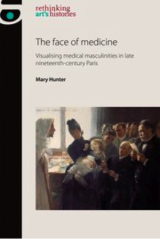 The Face of Medicine: Visualising Medical Masculinities in late Nineteenth-Century Paris (Manchester University Press, 2016).
The Face of Medicine: Visualising Medical Masculinities in late Nineteenth-Century Paris (Manchester University Press, 2016).
Hunter’s book, The Face of Medicine, explores why, how and where the worlds of art and medicine overlapped during the early Third Republic through an analysis of visual representations of 3 prominent medical men: the chemist, Louis Pasteur, the neurologist, Jean-Martin Charcot, and the surgeon, Jules-Émile Péan. Through an examination of sources surrounding the production, display and receptions of the imagery surrounding these men, Hunter considers how artists and physicians worked together to create realistic representations of bodies. By examining various objects – salon portraits, medical text books, artists’ manuals, paintings, encyclopedias, doctors’ letters and meeting notes, caricatures, dictionaries, novels, professional purchases, newspapers, art reviews, and, importantly, the multiple objects found in medical museums and hospitals, such as wax models, photographs, plaster casts, marble busts and drawings – Hunter explores what is at stake in the relationship between art and medical iconography.
Reviewed by: caareviews; Oxford Art Journal; H-France Reviews; Medical History; and Journal of the History of Medicine and Allied Sciences.
Articles, Chapters and Reviews
“Playing Doctor with Toulouse Lautrec: Male Friendship, Medicine and the Malleability of Identities” in Natalie Adamson and Richard Taws (eds), Companion to French Art, Wiley Blackwell. (Expected publication 2024).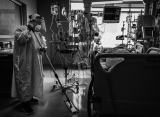
“A Developing Situation: Scenes of the First Five Waves”, Literary Review of Canada, June 2023.
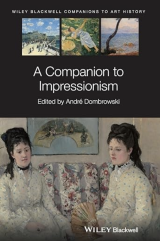 “Expert Hands, Infectious Touch: Painting and Pregnancy in Berthe Morisot’s The Mother and Sister of the Artist (1869-1870)” in André Dombrowski (ed), Companion to Impressionism. Wiley Blackwell, 2021.
“Expert Hands, Infectious Touch: Painting and Pregnancy in Berthe Morisot’s The Mother and Sister of the Artist (1869-1870)” in André Dombrowski (ed), Companion to Impressionism. Wiley Blackwell, 2021.
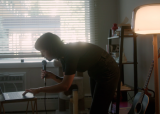 “Alone Together, Fast and Slow: Browsing through the films of Greetings from Isolation”, Luma: Film and Media Art Quarterly, Issue 023, Volume 7, Winter 2021.
“Alone Together, Fast and Slow: Browsing through the films of Greetings from Isolation”, Luma: Film and Media Art Quarterly, Issue 023, Volume 7, Winter 2021.
 “The Waiting Time of Prostitution: Gynaecology and Temporality in Henri de Toulouse-Lautrec’s Rue des Moulins, 1894.” Art History, vol. 42, no. 1 (2019): 68-93.
“The Waiting Time of Prostitution: Gynaecology and Temporality in Henri de Toulouse-Lautrec’s Rue des Moulins, 1894.” Art History, vol. 42, no. 1 (2019): 68-93.
“White Collars and Working Bodies in the Age of Industry.” Impressionism in the Age of Industry, ed. Caroline Shields, Toronto: Art Gallery of Ontario; Prestel, 2019.

“From Queen Victoria to Sausage Pants: Art in the Superhospital.” Canadian Medical Association Journal (January 08, 2018; 190:E18-E20; DOI: https://doi.org/10.1503/cmaj.170721). Co-author: Tamar Tembeck.
“The Parallel Practices of Art and Surgery.” The History of Surgery Reader. Ed. Thomas Schliche. Palgrave, 2017.
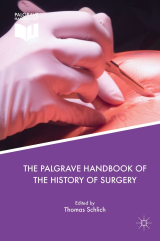
“Portraying Maude Abbott.” Canadian Medical Association Journal (February 21 2017; 189:E281-3.doi:10.1503/cmag.160976). Co-authors: James R. Wright, Richard Fraser and Annmarie Adams.
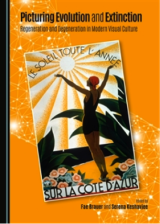 “Garçon! Waiters, Labour and Performance in Degas’s The Spectators." Perspectives on Degas. Ed. Kathryn Brown. Routledge, 2016.
“Garçon! Waiters, Labour and Performance in Degas’s The Spectators." Perspectives on Degas. Ed. Kathryn Brown. Routledge, 2016.
“Intern, Orderly, Artist, Corpse: Emerging masculinities in Henri Gervex’s Autopsy at Hôtel-Dieu.” Oxford Art Journal, vol. 38, no. 3 (2015): 405-426.
“Mouths that Bite: Rabies, Sexuality and Pasteur’s Cure.” Picturing Evolution and Extinction: Regeneration and Degeneration in Modern Visual Culture. Eds. Fae Brauer and Serena Keshavejee. Cambridge Scholars Publishing, 2015.
“What I learned visiting my mom at the hospital.” The Globe and Mail, September 17, 2013. http://www.theglobeandmail.com/life/facts-and-arguments/what-i-learned-v...

“Medical Masculinity and Sleeping Beauties: Identity and Sexuality in Henri Gervex’s Avant l’Opération.” Gender Scripts in Medicine and Narrative, eds. Angela Laflen and Marcelline Block (Cambridge Scholars Publishing Collection, 2010), pp. 32-63.
“‘Effroyable Réalisme’: Wax, Femininity and the Madness of Realist Fantasies.” RACAR, special issue on medical representation and visual culture, vol. 33, no. 1-2, 2008, pp. 43-58.
Courses Taught
ARTH205: Introduction to Modern Art
ARTH730: Curating Medical Spaces: Art, Objects, Ethics and Display
ARTH322: Realism and Impressionism
ARTH400: Art History Methods
ARTH420: Art and Society in France, 1870-1914
ARTH440: The Body and Visual Culture (Modern and Contemporary)
ARTH600: Advanced Pro-Seminar
ARTH675: Medical(izing) Bodies
ARTH678: Sickness and Social Deviance in 19th-century France
ARTH678: Sick and Tired: Women, Illness and Feminist Art History
ARTH675: From Abjection to the Uncanny: Critical Terms for the Visual Culture of Medicine